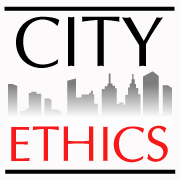One of the news media's biggest problems is failing to look at the
big picture and, instead, focusing on specific events and issues.
This is especially true when it comes to government ethics, where
the news media generally considers, and calls for, ethics reforms on
a piecemeal basis.<br>
<br>
<a href="http://www.innovateli.com/4844-2/" target="_blank">An article on the
Innovateli website yesterday</a> shows that this same limited
vision applies when a government ethics reform involves the news
media itself. The reform derives from a December advisory opinion by
New York state's Joint Commission on Public Ethics (attached; see
below), which determined that communications between PR consultants
and the press on public-policy issues constitute lobbying and,
therefore, must be disclosed.<br>
<br>
Quotes from news media experts focus on the First Amendment free
speech implications of this opinion rather than the role of such
communications in lobbying and grassroots lobbying efforts. A
journalism school dean is quoted as saying that “equating lobbying
public officials with talking to a reporter about a story reveals a
basic misunderstanding of the role of the press. Reporters and
editorial writers are not public officials, and they are not even
the indirect agents of public officials. They work in what they
believe is the public interest, and talking to the press does not
guarantee you have any control over what is eventually published or
produced.”<br>
<br>
But all this is beside the point. Reporters and editorial page
editors are certainly not public officials, but their articles and
op-ed pages are commonly used as part of lobbying efforts, for
example, by developers seeking approval of their developments,
sports teams seeking public subsidies of their new stadiums, and
universities seeking to expand. One of the most important parts of
such efforts is getting editorial page editors to come out in favor
of their goals in the form of editorials. Yes, these lobbying
efforts do involve free speech, but that doesn't mean they shouldn't
be disclosed by lobbyists.<br>
<br>
What is especially annoying is how PR professionals equate
disclosure with prohibition. One is quoted as saying, “If we can’t
contact the media, that means we’ll be running more campaigns on
social media.” Another is quoted as saying, “If we cannot contact
newspapers on behalf of our client, we will be hampered from the
operation of our business.”<br>
<br>
But there are no prohibitions or even restrictions in the state EC's
ruling; there is only a requirement of disclosure. If a lobbyist
would rather not do something than do it and disclose it, perhaps
it's something that shouldn't be done.<br>
<br>
When viewed in terms of large lobbying and grassroots lobbying
efforts, it seems perfectly reasonable for attempts to influence the
public and government officials through the news media to be
considered lobbying activities subject to disclosure
requirements.<br>
<br />
Robert Wechsler<br />
Director of Research-Retired, City Ethics<br />
 New City Ethics Inc.
New City Ethics Inc.